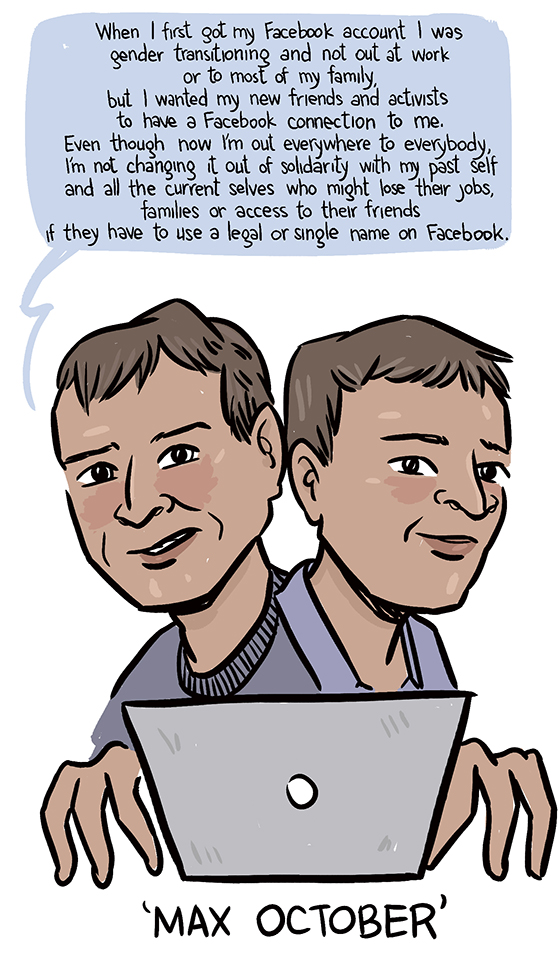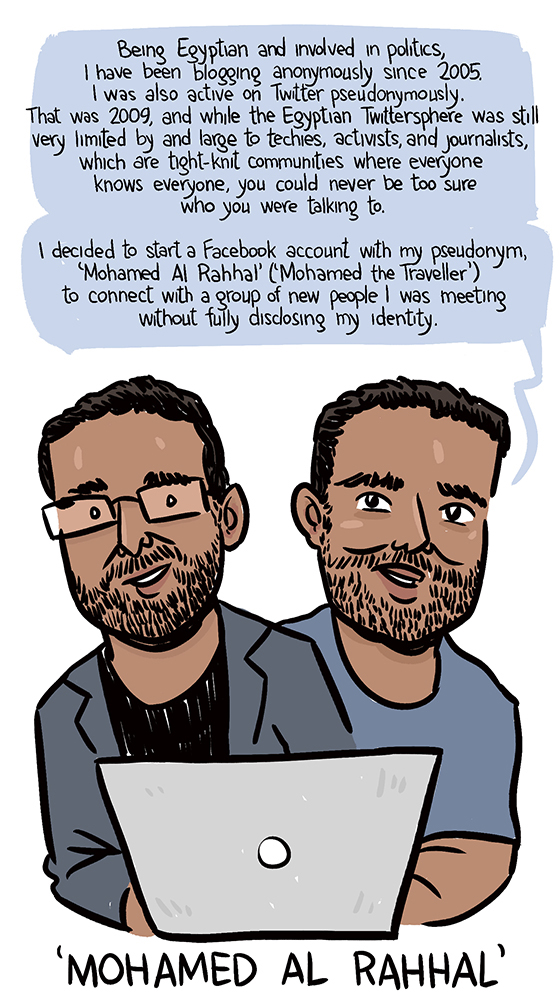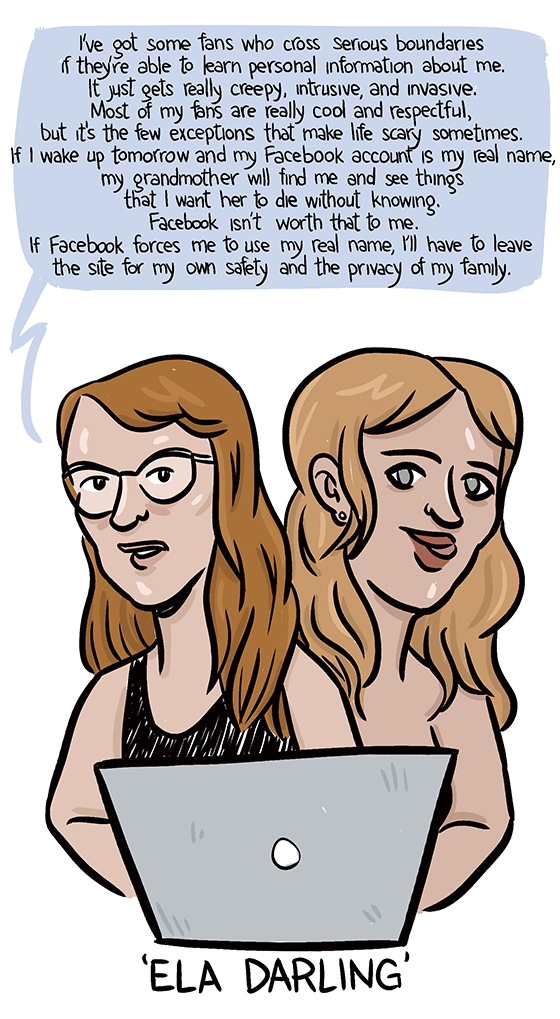What’s so wrong with leading a double life?
The past two weeks have seen Facebook’s sudden enforcement, retrenchment, and reversal of the company’s “real names” policy amidst massive public criticism. In response especially to pressure from the Bay Area’s LGBTQ community, the company has amended its 10-year policy on requiring legal names—“as it would be listed on your credit card, driver’s license or student ID”—to “the authentic name they use in real life,” according to Chris Cox, the company’s chief product officer.
Some point to that kind of anonymous community as a breeding ground for harassment and abuse—but it’s also a means of protection for many of Facebook’s 1.3 billion users.
Requiring “legal” names on social media could put not only gay and transgender people at risk, but could also harm undocumented immigrants, political activists in the United States and abroad, victims of violence, and many other vulnerable groups. But requiring one name at all—one “real life” name—still stands to stifle free expression and the ability to communicate online.
Facebook did not respond to a request for comment, but founder Mark Zuckerberg has been clear about his stance on individual identity and privacy in the past. In a 2010 interview, he repeatedly emphasized that we all have “one identity,” that “having two identities for yourself is an example of a lack of integrity.”
In the early days of Web-based socializing, there was no expectation of “real names”—users chose handles that represented them, and trust was earned between users, not on the basis of a platform vetting them. Some point to that kind of anonymous community as a breeding ground for harassment and abuse—but it’s also a means of protection for many of Facebook’s 1.3 billion users, who must rely on an alternative identity in order to participate in their communities.
For many people, one “real life” name is simply not enough. Three Facebook users told me about why they use fake names: “Max October,” a transgender activist; “Mohamed Al Rahhal,” an Egyptian blogger; and “Ela Darling,” an adult film star.



As much as Zuckerberg might like it not to be true, we all maintain multiple identities in our lives as a means of more easily navigating the world and our various communities, even when we don’t name them as such. Facebook tacitly acknowledges this by allowing for different groups and permissions on each user’s profile.
Of course users like Max, Mohamed, and Ela can always opt out of Facebook entirely—and all of its attendant social trappings.
“I think we all know that if you’re not using Facebook, you’re going to miss a lot,” says Electronic Frontier Foundation activist Nadia Kayyali. “It’s easy to say use a different form of social media, but in terms of reaching the greatest number of people and finding the community that you need, sometimes Facebook makes it easier. It’s just so huge.”
While the company may have apologized for the way it enforced its “real names” policy, that policy is unlikely to change in real substance. Facebook’s profit motive hinges on those real names. Data attached to other handles is not nearly as valuable.





